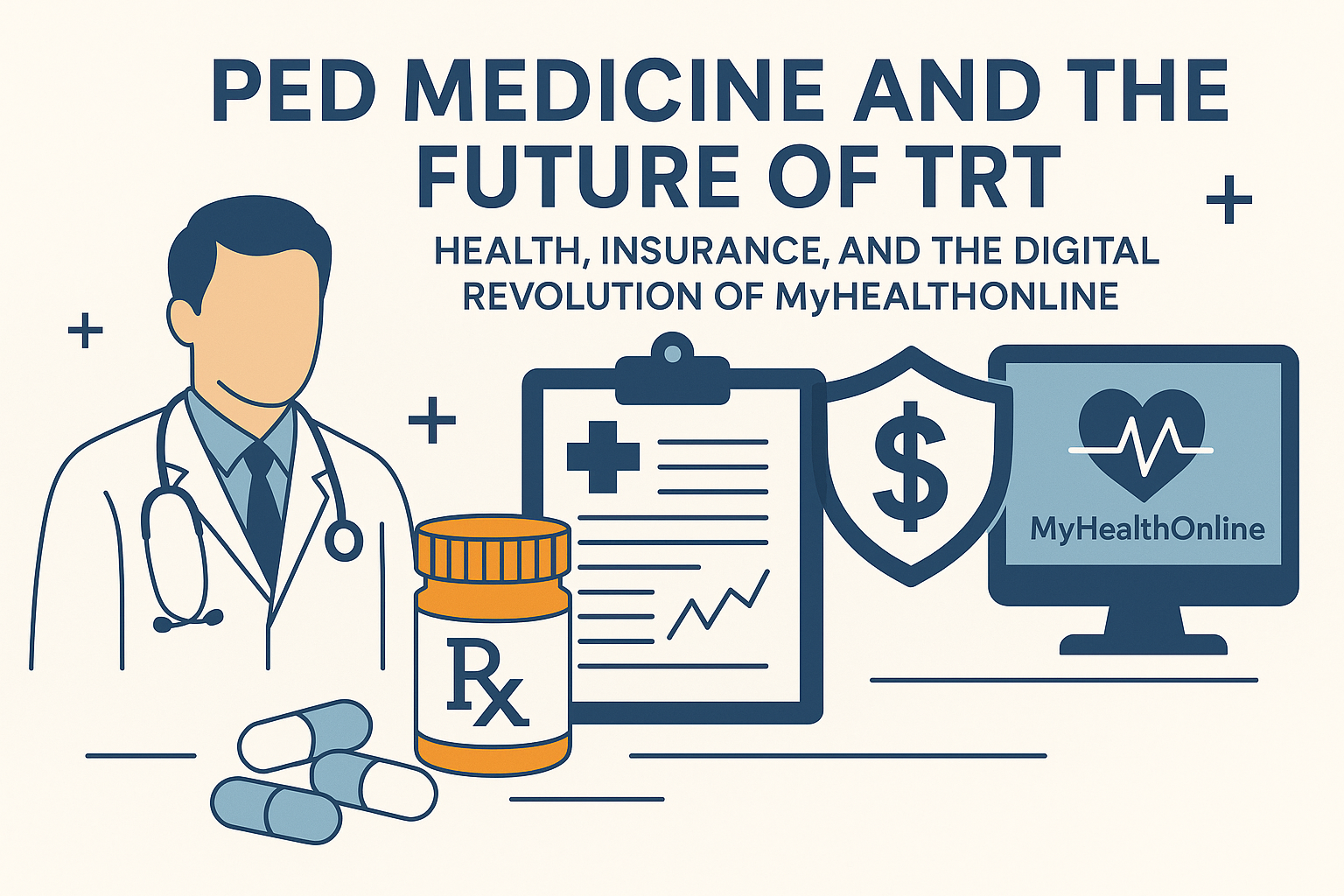
PED Medicine and the Future of TRT: Health, Insurance, and the Digital Revolution of MyHealthOnline
2025-06-16
Category: Health
PED Medicine and the Future of TRT: Health, Insurance, and the Digital Revolution of MyHealthOnline
In a world increasingly defined by personalized health care and digitized medical services, topics like PED medicine, TRT PED protocols, and insurance challenges are gaining mainstream traction. From fitness enthusiasts exploring testosterone optimization to patients managing hormone imbalances via platforms like MyHealthOnline, the intersection of performance enhancement, insurance, and healthcare technology has never been more relevant.
What Is PED Medicine?
PED stands for Performance-Enhancing Drugs, a term historically tied to sports. Today, PED medicine includes therapeutic testosterone, peptides, nootropics, and growth hormones—often prescribed in legitimate clinical settings. It is increasingly seen as a tool for proactive health management, especially in aging populations.
Understanding TRT PED in Modern Health
TRT (Testosterone Replacement Therapy) overlaps PED medicine when prescribed for low testosterone or performance enhancement. TRT PED protocols are medically supervised and help improve quality of life, mental health, and physical performance. This gray area between therapy and optimization is now widely discussed in health and wellness circles.
The Role of MyHealthOnline
Platforms like MyHealthOnline allow patients to manage lab results, communicate with doctors, and monitor therapies digitally. For TRT and PED users, this enables real-time access to bloodwork, e-prescriptions, and follow-up care. This digital shift improves patient adherence and empowers self-management.
TRT and PED Health Myths vs. Facts
- Myth: TRT always causes heart problems
- Fact: When properly dosed, TRT may reduce cardiovascular risk
- Myth: PEDs are only for bodybuilders
- Fact: Millions of middle-aged adults are prescribed testosterone for therapeutic reasons
Insurance and TRT: The Coverage Dilemma
Insurance companies often deny coverage for borderline TRT cases. Patients must prove medical necessity, which creates barriers. However, as demand grows, insurers are adapting through better insurance retention strategies.
Modern Insurance Retention Strategies
- Value-Based Coverage: Covering preventative hormone care to reduce long-term costs
- Digital Engagement: Partnering with tools like MyHealthOnline
- Gamification: Offering incentives for health tracking and compliance
Data, Access, and the Future
As wearables, blood monitoring, and digital apps become common, the integration between TRT, health optimization, and insurance will tighten. This is no longer fringe medicine—it’s the future of proactive wellness.
Conclusion
PED medicine and TRT PED protocols are part of a broader shift in healthcare: away from reactive treatment and toward customized, proactive health. Digital platforms like MyHealthOnline and updated insurance retention strategies are enabling patients to take charge of their well-being.
To stay ahead, build your habits, monitor your labs, and use platforms like FitGitt to track macros, meals, and performance progress.